Mulch vs. Rubber Mulch?
contessa29
7 years ago
Featured Answer
Sort by:Oldest
Comments (33)
Related Discussions
compost as mulch vs other mulches
Comments (3)Those old socks make excellent mulch :D Seriously, if you have enough compost to do that God Bless You. Most of us have trouble getting enough for soil amendment. It would depend, to a degree, on the type of compost but rough, partially finished compost, such as you described, ought to be great for mulch. Every time you water it will leach out some nutrients into the soil so you would get the double benefit of mulch and nutrients....See MoreAnyone use the rubber mulch?
Comments (13)Really ghostlyvision it decomposed? I know there is some rubber that breaks down in sunlight. I would not describe this as decomposing..but will have to take your word for it, as I have never SEEN it. DH works for a rubber factory. The mats left behind from the manufacturing process make great garage rugs. Tough rubber tips to clean shoes on. He has to be careful which he brings home..or we will have ooze stuck to the garage floor he tells me. Curiously just yesterday the national news did a story on playgrounds with tire mulch. Toxic they fear. I am all for recycling but not chemical, plastic,rubber in/on the ground as stated by me and carol and all those who agreed this stuff does NOTHING for the ground, ground water, plants who want to grow there....See MoreCedar Mulch VS Leaf Mulch (nutrient value?)
Comments (10)This is pure supposition, but it seems to me that if nothing else, leaves have less carbon mass than wood and therefore have more concentrations of nutrients/minerals per volume and mass than wood. And, as ellatiarella brings out, the decomp rate of leaves is much faster than wood. I agree that while decomposed woody material has benefits ( I use a lot of it myself,) leaves are preferable for both nutrients and turn around time for reentering the soil web. In fact, even in nature the slow decomp of wood benefits carbon sequestration, while the faster decomp of leaves (and more delicate biomass - including grasses and other less durable plant growth) is much more responsible for playing a role in the creation of creating nutrient-rich topsoil. That said... it's also true that any nutrient benefits of composts and mulches are long-term at best. They are not, in themselves, a replacement for situations where fertilizers are needed for optimum plant health....See MoreRubber mulch for dog area?
Comments (8)Nope. Pups will chew on and swallow almost anything. If you need something to cover a really dead space most frequently used -- such as where they like to sun themselves or lie in the shade -- you might consider creating a puppy patio with paving stones in that space and/or some clean bagged sandbox sand. Small gravel and sand would be preferable to mulch. A rubber "welcome" mat for each of them would be preferable to chopped rubber mulch....See Morecontessa29
7 years agolisanti07028
7 years agokimmq
7 years agoNevermore44 - 6a
7 years agotoxcrusadr
7 years agokimmq
7 years agocontessa29
7 years agotoxcrusadr
7 years agoaniajs
7 years agotoxcrusadr
7 years agotoxcrusadr
7 years agoEmbothrium
7 years agolast modified: 7 years agorhizo_1 (North AL) zone 7
7 years agotoxcrusadr
7 years agogardengal48 (PNW Z8/9)
7 years agogardengal48 (PNW Z8/9)
7 years agotoxcrusadr
7 years agolast modified: 7 years agodaninthedirt (USDA 9a, HZ9, CentTX, Sunset z30, Cfa)
7 years agolast modified: 7 years agoavgusta_gw
7 years agolast modified: 7 years agoavgusta_gw
7 years agolast modified: 7 years agoavgusta_gw
7 years agolast modified: 7 years agodaninthedirt (USDA 9a, HZ9, CentTX, Sunset z30, Cfa)
7 years agolast modified: 7 years agotoxcrusadr
7 years agotoxcrusadr
7 years agolast modified: 7 years ago
Related Stories

GARDENING GUIDESHow to Pick a Mulch — and Why Your Soil Wants It
There's more to topdressing than shredded wood. Learn about mulch types, costs and design considerations here
Full Story
GARDENING GUIDESNew Ways to Think About All That Mulch in the Garden
Before you go making a mountain out of a mulch hill, learn the facts about what your plants and soil really want
Full Story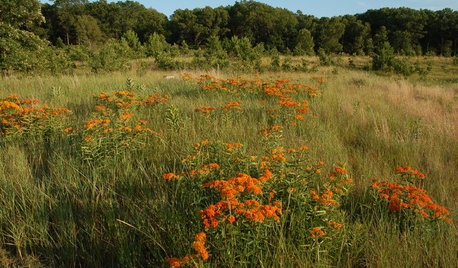
GARDENING GUIDESThe Art of Green Mulch
You can design a natural garden that doesn’t rely on covering your soil with wood and bark mulch
Full Story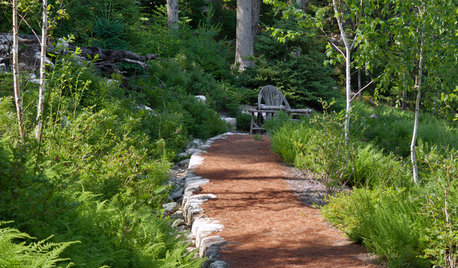
GARDENING GUIDES5 Things to Know About Weeding and Mulching Your Native Garden
What’s the best time to pull weeds? How thick should the mulch be? Here’s the scoop for a healthy landscape
Full Story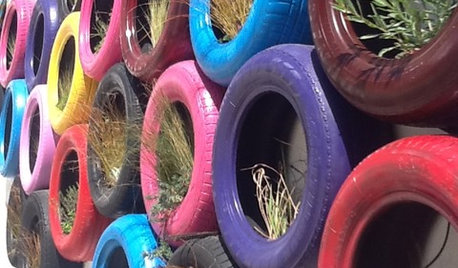
SALVAGECan We Bounce Some Great Recycled-Rubber Ideas Off You?
No need to bemoan that spare tire. Old rubber is getting a guilt-free second life as flooring, pavers, sinks and even furniture
Full Story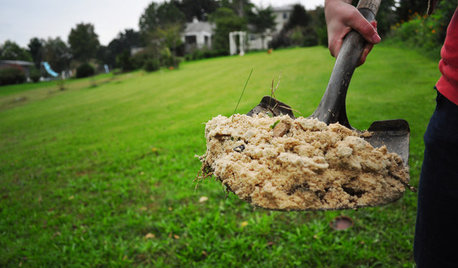
GARDENING AND LANDSCAPINGGarden Musts for March
Some toil in the soil this month will help ensure a blooming garden come summer, so dig out your shovel and bring on the mulch
Full Story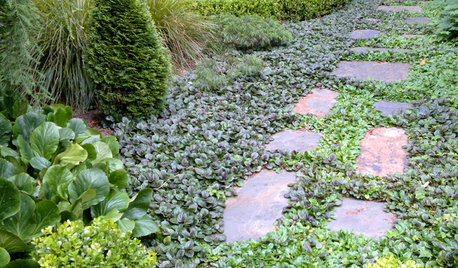
GROUND COVERSGround Force: 10 Top Ground Covers for Your Garden
Protect your soil from weeds and drought this summer with a living mulch of ground covers
Full Story
GARDENING GUIDESGarden Myths to Debunk as You Dig This Fall and Rest Over Winter
Termites hate wood mulch, don’t amend soil for trees, avoid gravel in planters — and more nuggets of garden wisdom
Full Story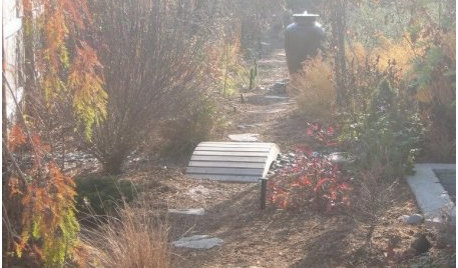
GARDENING GUIDESCentral Plains Gardener's November Checklist
Mulching, seeding, feeding — several small tasks to ensure a winter of activity, and a good spring start.
Full Story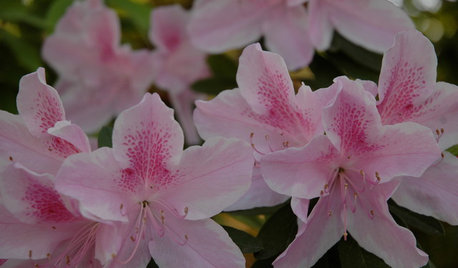
GARDENING GUIDESTexas Gardener's November Checklist
Planting and protecting are top priorities in the garden this month, so master the mulch and get those trees and shrubs in the ground
Full Story0






rayzone7